Concrete countertop coatings offer a versatile and customizable solution for homeowners looking to enhance the appearance and durability of their countertops. These coatings provide a protective barrier that can help to prevent staining, scratching, and etching on concrete surfaces, while also adding color, texture, and shine. Here’s everything you need to know about concrete countertop coatings:
Types of Coatings: There are several types of coatings available for concrete countertops, including epoxy, polyurethane, acrylic, and wax. Each type of coating has its unique properties and benefits, so it’s essential to choose the right one for your specific needs and preferences.
Epoxy Coatings: Epoxy coatings are a popular choice for concrete countertops due to their durability and versatility. They provide a thick, glossy finish that is highly resistant to stains, scratches, and heat. Epoxy coatings can be tinted to create custom colors and effects, making them ideal for creative and artistic designs.
Polyurethane Coatings: Polyurethane coatings are another durable option for concrete countertops. They provide a clear, protective finish that is resistant to water, chemicals, and abrasion. Polyurethane coatings are available in both water-based and solvent-based formulas, with water-based options being more environmentally friendly.
Acrylic Coatings: Acrylic coatings are a versatile and easy-to-apply option for concrete countertops. They provide a clear, glossy finish that enhances the natural beauty of the concrete while protecting against stains and scratches. Acrylic coatings are also UV-resistant, making them suitable for outdoor use.

Wax Coatings: Wax coatings offer a low-maintenance option for concrete countertops. They provide a natural, matte finish that enhances the texture of the concrete while protecting it from moisture and stains. Wax coatings require regular reapplication to maintain their effectiveness and may not provide as much protection as other types of coatings.
Color Options: Concrete countertop coatings come in a wide range of colors, allowing homeowners to customize the look of their countertops to suit their personal style and design preferences. From subtle neutrals to bold, vibrant hues, there’s a coating color to complement any kitchen or bathroom decor.
Texture and Finish: In addition to color, concrete countertop coatings can also add texture and depth to the surface of the concrete. From smooth and glossy to textured and matte, there are endless options for achieving the desired look and feel of your countertops.

Sealing Properties: One of the primary purposes of concrete countertop coatings is to seal and protect the surface of the concrete from damage. A quality coating will create a waterproof barrier that repels water, oils, and other liquids, preventing them from penetrating the concrete and causing stains or damage.
Application Process: The application process for concrete countertop coatings varies depending on the type of coating and the manufacturer’s instructions. In general, coatings are applied in multiple thin layers using a brush, roller, or sprayer. Proper surface preparation, including cleaning and sanding the concrete, is essential to ensure adhesion and durability.
Curing Time: After application, concrete countertop coatings typically require a curing period to fully dry and cure. This curing time can vary depending on factors like temperature, humidity, and the type of coating used. It’s essential to follow the manufacturer’s recommendations for curing to ensure optimal results.
Maintenance Requirements: Once applied, concrete countertop coatings require regular maintenance to keep them looking their best. This may include periodic cleaning with mild soap and water, avoiding abrasive cleaners or scrubbers, and reapplication of sealant as needed to maintain protection.
Heat Resistance: While concrete countertop coatings provide some heat resistance, it’s essential to use trivets or hot pads to protect the surface from direct contact with hot pots, pans, or appliances. Prolonged exposure to heat can cause damage to the coating and the underlying concrete.
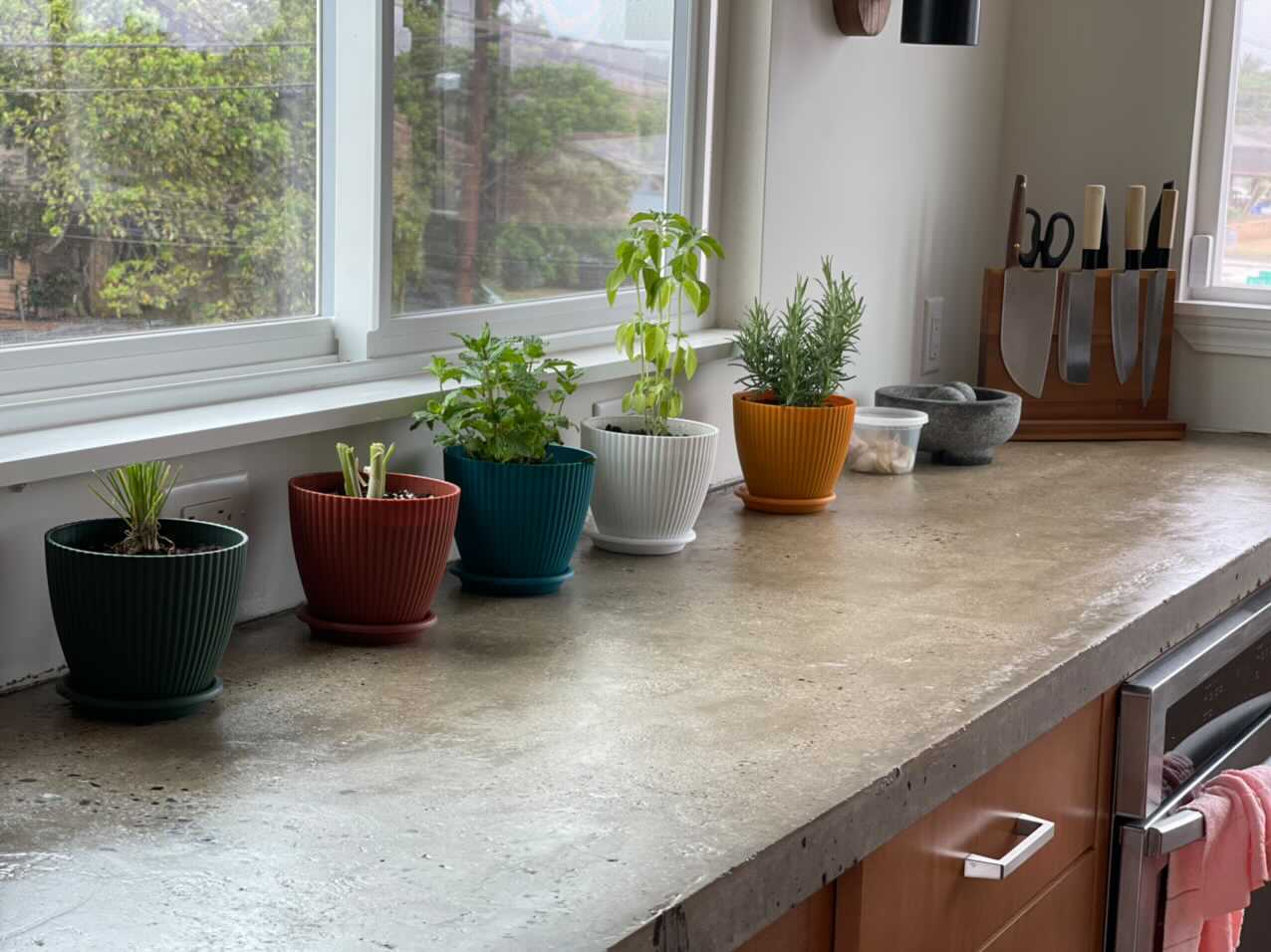
Longevity: With proper care and maintenance, concrete countertop coatings can last for many years. However, heavy use or exposure to harsh chemicals may require more frequent reapplication of sealant to maintain protection and appearance.
Customization Options: Concrete countertop coatings offer endless customization options, allowing homeowners to create unique and personalized designs. From adding metallic accents to embedding decorative elements like glass or stone, the possibilities are limited only by your imagination.
Cost Considerations: The cost of concrete countertop coatings can vary depending on factors like the type of coating, the size of the countertop, and any customization options chosen. While coatings may add to the initial cost of installing concrete countertops, they can help to prolong the lifespan and enhance the appearance of the countertops, making them a worthwhile investment.
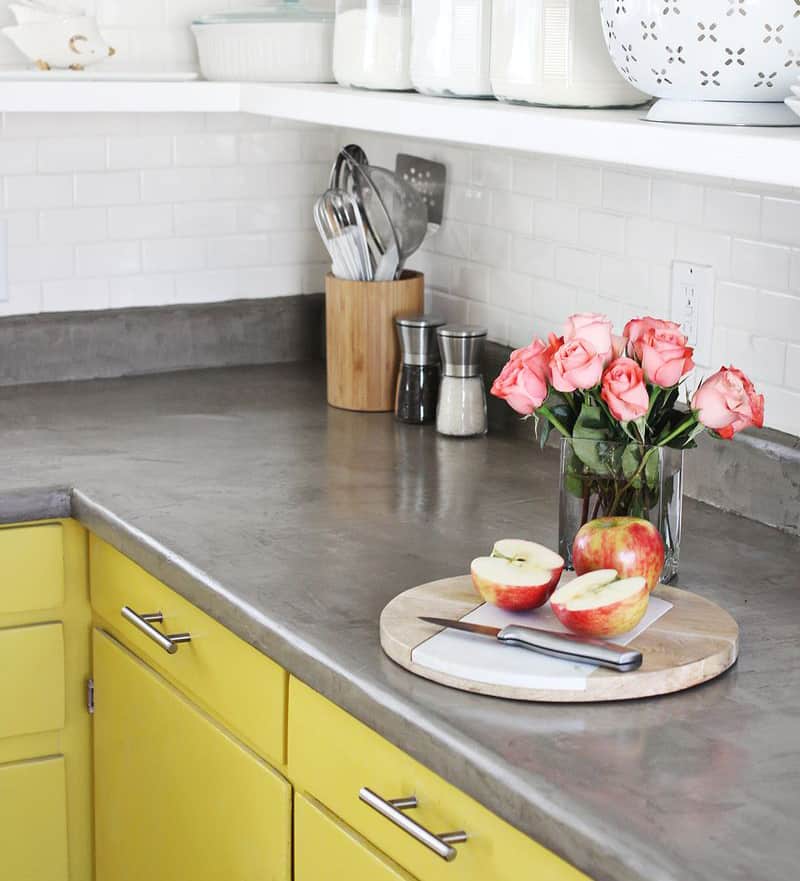
Common Mistakes to Avoid:
Skipping Surface Preparation: One common mistake is skipping or rushing through the surface preparation process before applying the coating. Proper cleaning, sanding, and priming of the concrete surface are essential to ensure the adhesion and durability of the coating. Failure to prep the surface adequately can result in poor adhesion, peeling, or delamination of the coating.
Overlooking Compatibility: Another mistake is failing to consider compatibility between the coating and the concrete substrate. Not all coatings are suitable for use on concrete countertops, and using the wrong type of coating can lead to issues like poor adhesion, discoloration, or chemical reactions. Always choose a coating specifically designed for use on concrete surfaces.
Applying Too Thickly: Applying the coating too thickly can result in uneven coverage, drips, or bubbles in the finish. It’s essential to follow the manufacturer’s recommendations for application thickness and to apply multiple thin coats rather than a single thick coat to achieve a smooth and even finish.
Neglecting Maintenance: Once the coating is applied, it’s important to stay on top of regular maintenance to keep the countertops looking their best. Neglecting to clean and reseal the countertops as needed can lead to stains, damage, and premature wear of the coating.
Ignoring Environmental Factors: Environmental factors like temperature, humidity, and exposure to sunlight can affect the performance and durability of concrete countertop coatings. It’s essential to consider these factors when choosing a coating and to take steps to protect the countertops from damage, such as using UV-resistant coatings for outdoor countertops or installing proper ventilation in kitchens with high humidity levels.
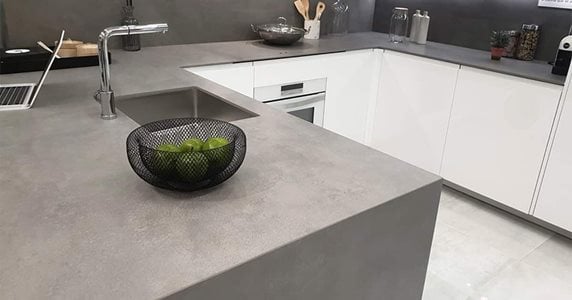
Can I apply a new coating over an existing one?
In some cases, it may be possible to apply a new coating over an existing one, but it’s essential to ensure that the existing coating is clean, dry, and in good condition before proceeding. Sanding or stripping may be necessary to remove any old or damaged coating before applying a new one.
How often do I need to reapply the coating?
The frequency of reapplication depends on factors like usage, exposure to moisture and heat, and the type of coating used. In general, it’s recommended to reapply the coating every 1-3 years or as needed to maintain protection and appearance.
Can I use concrete countertop coatings on outdoor countertops?
Yes, many concrete countertop coatings are suitable for outdoor use and can protect against the elements, including UV exposure, moisture, and temperature fluctuations. Be sure to choose a coating specifically designed for outdoor use and follow the manufacturer’s recommendations for application and maintenance.
Are concrete countertop coatings food-safe?
While many concrete countertop coatings are non-toxic and food-safe once fully cured, it’s essential to check the manufacturer’s specifications to ensure that the coating is suitable for use in food preparation areas. Some coatings may require a specific curing period or additional steps to ensure food safety.
Can I customize the color of the coating?
Yes, many concrete countertop coatings can be tinted or pigmented to create custom colors and effects. Whether you prefer a bold, vibrant hue or a subtle, natural tone, there are endless options for customizing the color of your countertops to suit your personal style and design preferences.
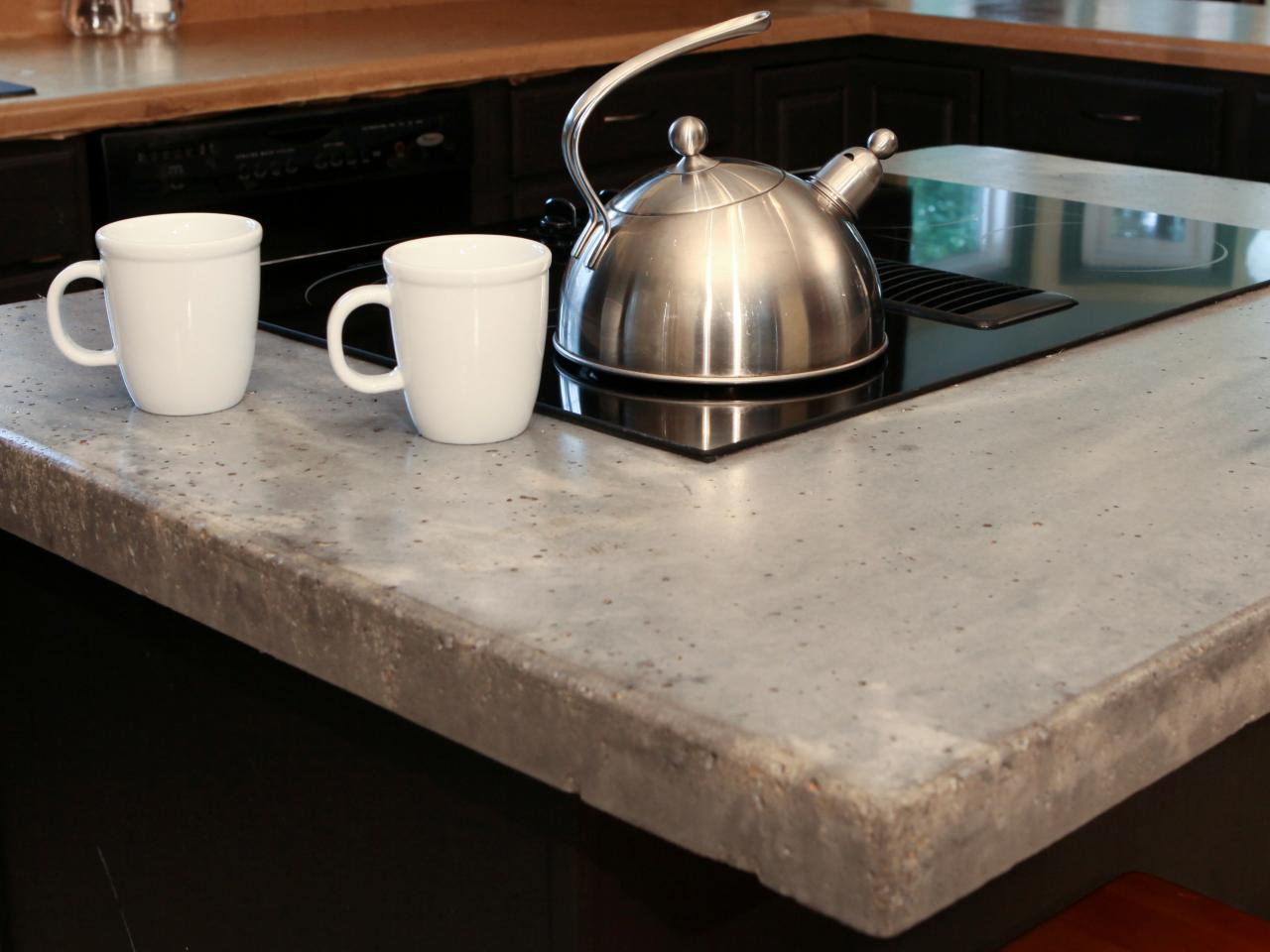
DIY Feather Finish Concrete Countertops

How to Resurface a Concrete Counter Top – YouTube

Trying Our Hand At DIY Ardex Concrete Counters Young House Love
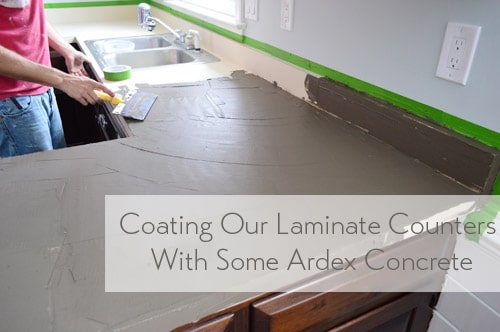
Concrete Countertops: Creativity and Ingenuity – Concrete Decor
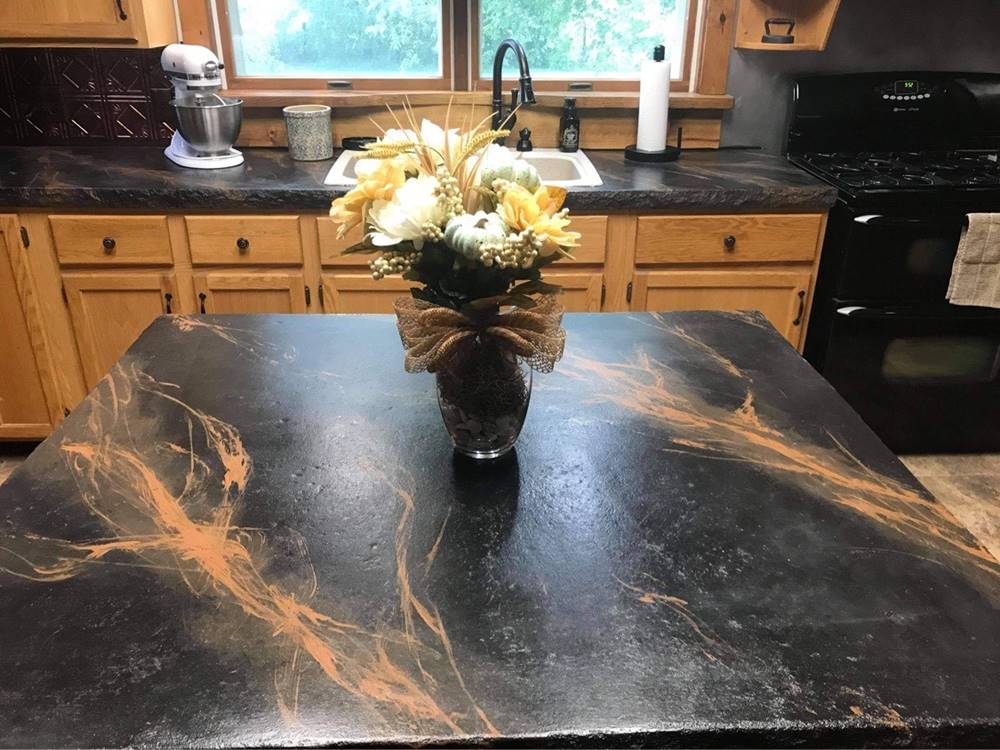
Related articles:
- Concrete Countertop Overlay
- Black Concrete Countertops
- Marble Look Concrete Countertops
- Light Grey Concrete Countertops
- Concrete Countertop Design Ideas
- Light Colored Concrete Countertops
- Epoxy On Concrete Countertop
- Concrete Countertops Designs
- Concrete Countertops That Look Like Wood
- White Concrete Countertops